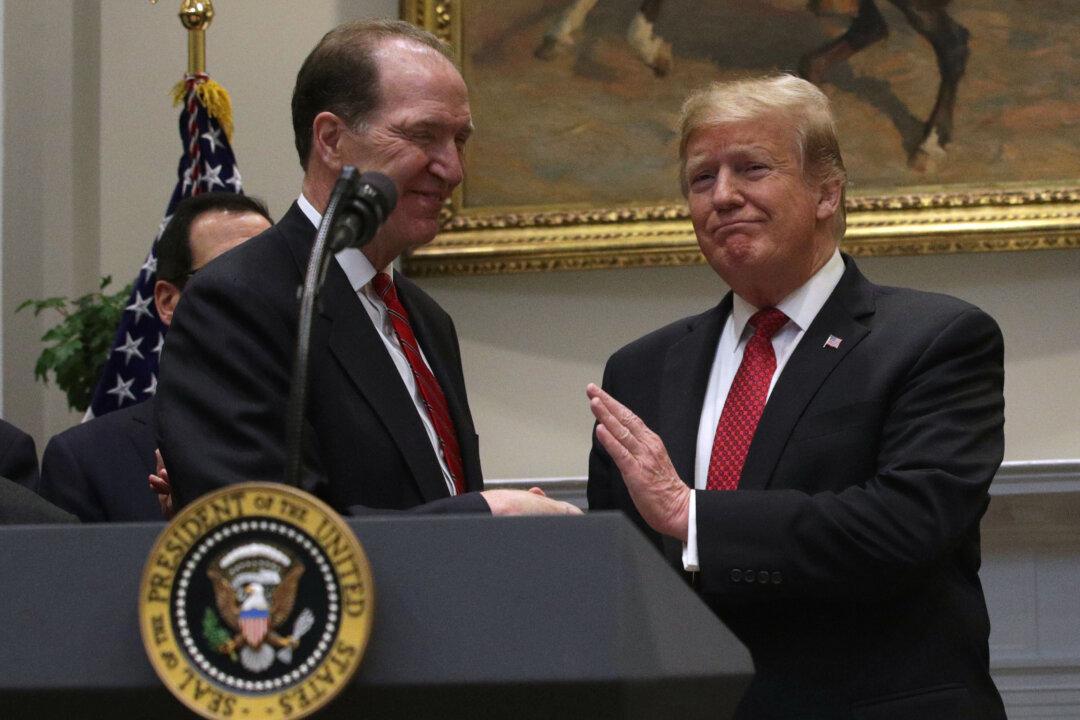David Malpass, President Donald Trump’s nominee for the position of World Bank president, said he intends to implement reforms that he helped convince the international institution to accept.
Trump announced Malpass’s nomination on Feb. 6, calling him “the right person to take this incredibly important job.”





